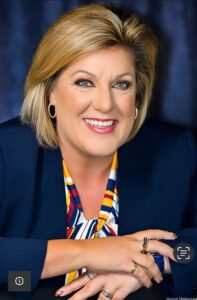Exceptional Encounters with Leaders: Developing Leaders through Education and Inspiration

A Q & A Session with Dr. Theresa “Tre” A. Smith, Deputy Joint Program Executive Officer, Armaments & Ammunition, United States Army
Dr. Theresa “Tre” A. Smith has many descriptors, however, I found her to be an incredible woman who aspires to be great not simply for the sake of it, but for the path it creates for others. She seeks to be the wind for wings that need to fly and the compass for those who need direction. During this interview, Dr. Smith provides her insights on what it takes to develop great leaders and the significance of continuing education for individuals on every career level to enable them to operate at their optimum by connecting them to the right tools at the right time.
- What inspires you to continue to grow and develop? My drive inspires me to succeed and help others through education, hard work, and volunteerism/community service. I did not have leaders early in my career who inspired me to grow in my career beyond their level of success. If it was good enough for them in their career – why should I want more? I wanted to be a different type of leader who inspires others to achieve their goals and if it is beyond my own aspirations – and I will do what I can to help them reach that goal.
- What is the driving force behind your passion for coaching, mentoring and growing Jr. leaders? I have an innate drive to inspire others and to assist them in becoming the best version of themselves. You don’t need multi-millionaires, celebrities, or national athletes to inspire you – just someone who believes in you and your potential. The people you surround yourself with daily have a considerable influence over your mindset and, in turn, your actions. It is essential to surround yourself with people who push you to be better than you were yesterday. As a DA Civilian, I did not have that in my early years. I never even met my first SES (Jyuji D. Hewitt) until 2007. Coming up I had leaders who did not believe I could succeed beyond their level.
- During your tenure as a functional Advisor for the Army’s Logistics Career Field, what would you consider the most important aspect of your position? As a leader, I have an incredible opportunity to change someone’s life every single day. Leadership is never about tearing people down, it’s all about helping people become the very best version of themselves. In my role as the FA in the LCF, I had a unique opportunity to give the oath of office to Army Fellows during their initial orientation in service to this nation as a DA Civilian, perform retirements for individuals I once served with in uniform and everything in-between.
- Can you share why it is so essential to invest in people through continuous education and professional development? Being successful doesn’t necessarily make you great. What makes you great is when you reach back and help someone else become great.
- As an alumnus of IDB’s LOGTECH Executive Program, what was one of your primary takeaways?
- Roles and Responsibilities: My way of finding a place in this world is to write one. – Barbara Kingsolver (I have been writing my own my entire life)
- Architect: provides leadership, vision, coaching, and direction
- Wizard (Fact Checker): Provides research, data, experiments.
- Oracle: Provides expertise in critical subject matter
- Build Narratives: “What is Possible?”
- Develop a question of interest. Create clarity, challenge assumptions, see things in a new way, encourage critical thinking.
- Observation of people’s strengths (and what they do right) and building on them to create more benefit than identifying weaknesses (or what they do wrong) and trying to correct them.
- A positive Ratio Above 3:1. People always comment on my energy. I do my best every day to find the positive. I find it is contagious, brings others joy, and reduces stress. I used to walk the halls of the Pentagon and speak to everyone I encountered. When they asked how I was doing my response was “Living my Dream”.
- Deliberately creating defocused time (rest). Harmony versus Balance.
- How have you impacted the overall functionality of your team through education? I help others (military and civilian alike) discover opportunities that they may not have been otherwise exposed to.
I have proven time and time again that your dreams can come true with hard work and determination. – I am living my dream.
- With your experience in talent management and professional development, what would you like to see available to your organization when it comes to executive education? Military / Civilian Mentorship at all echelons. I spoke of this concept with several sergeants’ majors. Senior Civilians traditionally have informal mentorship with General Officers; I recommend creating a deliberate talent management relationship with non-commissioned officers / warrant officers and DA Civilians which does not exist today.
- What advice would you give to an organization struggling to grow and develop leaders within their organization? Listen to your workforce to glean what inspires them to grow and develop. You should never be too busy to listen because it’s the ultimate form of respect anyone can give another human being. Seek opportunities to enhance the future leaders of this nation. Ask those who inspire others for guidance.
Dr. Smith is an exemplary leader and an asset to our nation. Her insights on this topic are a valuable contribution.